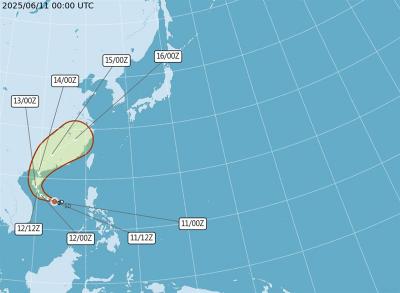The Ministry of Transportation and Communications has proposed a set of amendments to an existing tourism law that would impose heavier punishments on businesses in the sector that operate illegally, after hundreds of tourists were stranded in Vietnam earlier this year.
Amendments to the Act for the Development of Tourism (發展觀光條例) include raising the maximum fine for tourism-sector businesses, including hotel operators and travel agencies, caught damaging national dignity, acting immorally or defrauding tourists from NT$500,000 (US$15,375) to NT$1 million, the ministry said.
In addition, the fine for businesses that continue to operate despite being ordered to close would be increased from NT$500,000 to NT$2 million. The maximum fine for those operating without a license would also be raised from NT$500,000 to NT$2 million, the ministry said.
Fines for unlicensed tourism operators caught disseminating, broadcasting or publishing advertisements through any form of media, including television and the Internet, would increase from the NT$30,000 to NT$300,000 range to NT$60,000 and NT$1.5 million.
The proposed amendments were announced on June 20, following an incident involving 300 Taiwanese tourists who were stranded in Vietnam on a tour to Phu Quoc Island in mid-February.
The incident occurred due to a dispute over outstanding payments between Taiwan-based We Love Tour and a Vietnamese travel agency. We Love Tour was fined NT$810,000 for contravening the tourism law and the Regulations Governing Travel Agencies.
The increased fines intend to deter businesses from operating illegally or contravening laws and regulations, and would enhance the tourism sector, the ministry said.

A magnitude 6.4 earthquake struck off the coast of Hualien County in eastern Taiwan at 7pm yesterday, the Central Weather Administration (CWA) said. The epicenter of the temblor was at sea, about 69.9km south of Hualien County Hall, at a depth of 30.9km, it said. There were no immediate reports of damage resulting from the quake. The earthquake’s intensity, which gauges the actual effect of a temblor, was highest in Taitung County’s Changbin Township (長濱), where it measured 5 on Taiwan’s seven-tier intensity scale. The quake also measured an intensity of 4 in Hualien, Nantou, Chiayi, Yunlin, Changhua and Miaoli counties, as well as

Taiwan is to have nine extended holidays next year, led by a nine-day Lunar New Year break, the Cabinet announced yesterday. The nine-day Lunar New Year holiday next year matches the length of this year’s holiday, which featured six extended holidays. The increase in extended holidays is due to the Act on the Implementation of Commemorative and Festival Holidays (紀念日及節日實施條例), which was passed early last month with support from the opposition Chinese Nationalist Party (KMT) and Taiwan People’s Party. Under the new act, the day before Lunar New Year’s Eve is also a national holiday, and Labor Day would no longer be limited

COMMITMENTS: The company had a relatively low renewable ratio at 56 percent and did not have any goal to achieve 100 percent renewable energy, the report said Pegatron Corp ranked the lowest among five major final assembly suppliers in progressing toward Apple Inc’s commitment to be 100 percent carbon neutral by 2030, a Greenpeace East Asia report said yesterday. While Apple has set the goal of using 100 percent renewable energy across its entire business, supply chain and product lifecycle by 2030, carbon emissions from electronics manufacturing are rising globally due to increased energy consumption, it said. Given that carbon emissions from its supply chain accounted for more than half of its total emissions last year, Greenpeace East Asia evaluated the green transition performance of Apple’s five largest final

The first tropical storm of the year in the western North Pacific, Wutip (蝴蝶), has formed over the South China Sea and is expected to move toward Hainan Island off southern China, the Central Weather Administration (CWA) said today. The agency said a tropical depression over waters near the Paracel and Zhongsha islands strengthened into a tropical storm this morning. The storm had maximum sustained winds near its center of 64.8kph, with peak gusts reaching 90kph, it said. Winds at Beaufort scale level 7 — ranging from 50kph to 61.5kph — extended up to 80km from the center, it added. Forecaster Kuan Hsin-ping